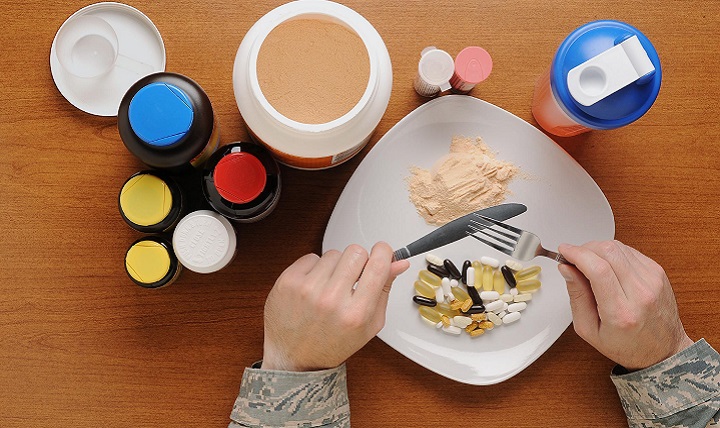Breast milk is an elixir to your baby. It is one of the best thing you can do for your tiny soul.
The moment people around you know that you’ve delivered a baby and plan to breastfeed, everyone from your distant relatives to the neighbors you had not even seen before, will ply you with their own “wisdom pearls”. Some of these may be helpful but the chances are more that much of it would be useless. Misconceptions and myths over breastfeeding have prevailed for many generations and passed from one generation to the next.
Also Read: 9 Things you must tell to your son
Common Myths associated with Breastfeeding in Society
1.Your baby is not getting enough milk
During during initial few days after delivery your breast milk production is in excess and you may have engorged breast and drenched up clothes many times a day. But later on this is going to decrease or stop all together. You may get tonnes of advises from everyone near to you. “Your baby is not getting enough milk, should be top fed with cow milk or formula milk.”During the early weeks (6-8 weeks) mother will often have more milk than baby needs. But the truth is that your body has now sensed the milk need of your baby, production being adjusted according to the need of your baby.
Size doesn’t matter! Breast tissue enlarges in response to pregnancy regardless of your breast, capable of providing your baby with the milk. Mother with inverted nipples can efficiently feed their babies.
3. It doesn’t hurt
Breastfeeding do hurt especially initially when the baby is trying to suckle and large properly this is for the aggravated as a child needs to be free every 1.5 to 2 hours its not only hurting but also exhausting to mother and when the baby erupts his teeth then it can lead to further trauma to the breast.Usually pain, soreness subsides in 3 to 4 days,if lasts beyond 5 to 6 days then seek someone for help.
4. Baby is crying, he is hungry
There are hundreds of reasons baby can cry for, not only for milk. However, this is probably the first thing you think of when your baby cries. Baby is the best judge of his hunger. Reason behind why a baby is fussy: wetted or dirty diapers, nap time, needs to burp, wants to be cuddled, feeling too cold or hot, discomfort due to stomachache, teething or any other ailments or sometimes babies have their own good reasons to cry. As long as your baby is steadily gaining weight, everything is absolutely fine.
5. You can give water to baby in hot summers
Breast milk provides all the energy and nutrients that an infant needs for the first six months of life, up to half or more during the second half of infancy and up to one-third during the second year of life.
The World Health Organization(WHO) recommends exclusive breastfeeding in the first six months and continuation of breastfeeding for 2 years and beyond. Exclusive breastfeeding means that the infant does not receive any additional foods(except vitamin D) or fluids unless medically recommended.
Also Read: Post Pregnancy Depression
6. Breastfeeding looses weight
Although breast milk has been shown to have many health benefits for both the mother and the baby. It has been proved to increase the risk of ovarian and the breast carcinoma cardiovascular diseases type 2 diabetes and weight loss. But the studies have found role of breastfeeding in weight loss is questionable.
7.Prolonged breastfeeding makes our bones brittle
Though there is massive change in turnover of calcium during lactation and pregnancy and studies have done to correlate the duration of breastfeeding and gold mineral density bone mineral density but no clear evidence of an effect on breastfeeding on osteoporosis has been ruled out. Its fine to continue as long as breastfeeding is working for you and your baby.?
8.Breastfeeding Prevents You From Getting Pregnant
Breastfeeding is not a full proof and guaranteed method of birth control. Frequent and regular breastfeeding as a form of contraception is called lactational amenorrhoea method (LAM), about 98 per cent effective. But again, if your menstrual cycle begins within six months from your delivery, you can get pregnant easily.
Talk to your doctor before taking any birth control pill, chemical enter into your baby body via breast milk and won’t be safe for your baby.
9. Breastfeeding Moms have to be careful about what they eat/Drink
This happens to each and every new mom, you do get bored and frustrated eating bland food. However abstinence of spicy food for sometime is even good for you. Don’t limit your diet excessively. Opt for wait-and-see approach: Breastfeeding mothers can safely eat any foods they like. If you find your baby fussy after you had something, try to avoid that food for time being, then try it again later to see if problem crops again. Nursing mother can safely consume 1 to 2 cups of coffee per day without causing harm to your baby.
10. Skipping feedings won’t affect my production
Milk production needs extra calories(1500-1800 calories/day). Reducing the amount of food you can affect your breast-milk production. It is mandatory to have a diet good at both quality and quantity.
11. You Can’t Breastfeed if You’re Under Some Medication or you are sick or if you have a blocked duct or breast infection
Not all but there are some drugs to be forbidden during breastfeeding. So, make sure for the safety of particular drug with your physician.
During any “ordinary” illness such as a cold, sore throat, flu, tummy bug, fever cold, continue to breastfeed. HIV and HTLV-1 are the only infectious diseases that are considered absolute contraindications to breastfeeding in developed countries.
Do not stop feeding your child when you have breast infection on the blocked ducts. Feeding your child is the best way to treat your blocked ducts. And the best way to prevent infection is to clear blocked ducts. The reasons behind the blockage is that your breast is overfull, child took a longer nap or child has started eating solid food.
If you do develop a breast infection—symptoms including redness and soreness in the breast, a fever and flu-like symptoms—see your doctor right away.
12. Discontinue Breastfeeding if your baby has Diarrhea or Vomiting
Diarrhea in a breastfed baby is diagnosed when a baby has 12-16 stools per day. General opinion is to hold dairy products owing to lactose which can further aggravate diarrhea. Breast milk is not considered a dairy or milk. As far as the baby is able to take orally, breastfeeding should be the first choice. Mom’s milk provides antibodies specifically tailored to fight baby’s illness that may add in speedy healing and recovery.
13. You will probably need to wean when you go back to work
Working women face unique obstacles in maintaining adequate milk supply once they return to work. But, with proper planning, commitment, and skilled use of a breast pump, working moms can maintain their milk supply and continue breastfeeding even after returning to workforce.
14. Stop Breastfeeding after baby turns six months of age
Many women believe that the quality of breast milk begins to decline after 6 months. But,composition of human breast milk is such that it changes according to the needs of the baby and as the baby grows up.
Breast milk should remain the primary source of nutrition till the child turns one first and would become a supplement to solids during your baby’s 2nd year. Breast milk does continue to complement and boost the immune system for as long as it’s fed to your growing child.
15. Breastfeeding in lying down position causes ear infections in baby
Not true. Breastfeeding can actually decrease the incidence of ear infections. Breast milk inhibits the growth of bacteria. Perfect latch of baby to the breast creates a tight seal, so rarely breast milk dribble out from baby’s mouth.
This myth holds true in context of bottle-feeding. Baby who is given a bottle of formula while lying flat, the formula can get into the Eustachian tubes and middle ear, encourages growth of bacteria and can lead to ear infection. It is utmost important while you feed your little one that you both should be at ease.
16. Breastfeeding is the best way to bond with your baby
True, no doubt breastfeeding is the best way to bond with your baby but there are mothers who cannot feed the baby due to emotional, physical or medical reasons. Do not feel disappointed, keeping a child nine months inside you cannot be outweighed by anything. Bonding of mother baby starts in uterus only.You are still a good mom no matter how you feed your baby.
References.
1. WHO. Infant and Young Child feeding. Model Chapter for textbooks for medical students and allied health professionals. Geneva: World Health Organization; 2009.





